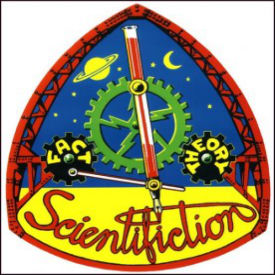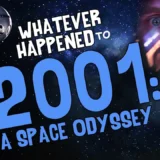
An explosion at a chemical plant tears a family apart. The man at the police station is torn emotionally, but is somehow realizing that the greatest tear here is in time…
The last dense drops of exhausted oil plopped reluctantly into a stained metal pan as the afternoon stretched and dozed. Ralph Jackson scrutinized each trace dutifully as he stood ramrod straight under the garage’s only functioning power lift. Sharp shafts of sunlight hurtling through high windows etched his slender silhouette onto a cinder block wall. Dust motes danced fitfully to the tune of a pair of growling fans determined to transform the musky, imprisoned air of the bay into a blast furnace.
An unearthly howl erupted, its pitch ascending in remorseless frenzy and leveling off in an unrelenting wail that left the unincorporated community of Morgan’s Grove gasping for air. An eternity later, the siren began to throttle down, its sadness echoing hauntingly across the obdurate Virginia hills and rasping Jackson’s nerves like the barbs of a honey bee stinger. A few precious heartbeats of respite were followed by another round of mechanical mourning. It could mean only one thing: Emergency. Chemical plant. Not even bothering to lower Earl Brewster’s Chevy to the garage floor, Jackson raced to the telephone on the front counter.
One ring. More rings. Pick up. Pick up! Susan and Janie, where are you?
As he gripped the receiver fiercely, sweat slid unabated down his deeply furrowed brow. Beyond the smudged plate-glass window, a diminutive white butterfly zigzagged above the cracked asphalt parking lot, blissfully oblivious to the desperate affairs of man. Nothing else moved in the stifling July heat. No traffic or kids on bikes. Not even a breath of wind to brush the tightly packed maples and oaks with whispers. The world was arrested in abject fear.
The phone’s ringing continued, unrequited.
Jackson didn’t remember hopping into his pickup truck, wasn’t even sure whether he had told his boss that he was leaving to check on his family. He found himself heaving the steering wheel frantically to the left to avoid sideswiping a frequently-scraped guardrail as he took a creek-hugging curve much too fast. He realized that he had already passed the Pepsodent billboard and the driveway to the Douglas farm. He must have been entranced by the siren. Not satisfied with permeating the air, the incessant signal was injecting its anguish into every pore and every cell of every resident and everything they held dear. Even the shallow, hardpan soil that wouldn’t grow much of anything other than misshapen tomatoes and stunted corn — when the rains obliged.
New sirens rang out, closer, even more insistent, but behind him. He pulled over as emergency vehicles streaked past in a cacophonous blur. Four, five, six of them. He recalled the last time that there had been a serious problem at the plant. He must have been 15 or 16. Some chemicals spilled. His uncle and the other workers who cleaned up the chemicals got sick, so sick that they never went back to work. The siren never sounded.
Now he was rumbling past the Elks Lodge, a few hundred yards from the entrance to the plant. After topping a hill, he saw that the road was blocked by a tangle of emergency vehicles with sweeping lights that stabbed the brand-new laundromat and a crumbling wooden shed and yellow-vested figures and crooked telephone poles in turn. He bounded out of his truck, calculating how long it would take to reach his house, just a couple of miles away. Back in high school, he could run the mile in just over four minutes. He was still in decent shape, and he would flat-out fly today.
Powerful arms collected him in a bear hug. He fought to get loose. “I’ve got to go home. Susan and Janie!”
“No one gets through, Ralph. Leave this to us,” said Jimmy Watkins, a volunteer firefighter who was a good 30 pounds heavier than him.
Jackson relented, jumped back in his truck, turned it around, and sped off, analyzing a maze of gravel county roads and dusty farm lanes that was hard-wired into his brain. This cruel blockade could be outflanked. It would take about 20 minutes, maybe less with the pedal to the floor.
South, then west, then northeast, the compass in his head always pointing true to his family. Why hadn’t they answered the phone? Could they be at the Venters house? Did someone take them to church?
He felt it before he heard it. Cascading through the startled earth and air like billions of colliding billiard balls, the force of the explosion nearly tossed his pickup off the road. Jackson watched in horror and disbelief through the grimy passenger window as a massive orange-and-black cloud rose angrily from the direction of the plant. He sped up but soon noticed what appeared to be a sparkling curtain of fog or mist directly ahead of him. He plowed through it, and suddenly his truck was bouncing and lurching violently, as if his shock absorbers had left town with the summer carnival. The road — it was gone. He was driving over desiccated brush and uneven mounds of dirt. He rolled to a stop less than 10 feet short of a rusted metal fence. It looked to be at least eight feet tall, with barbed wire leering menacingly from the top. Where did this come from?
He rammed the fence, but it held. It took four more tries to knock down a portion of it and drive past it. No doubt his truck’s grille was scratched and its green paint would need touching up. God help him if one or more of the tires were punctured. “Sorry, Bess,” he muttered. His daughter Janie had named her. Jackson always liked the name Bess. Not every ’52 Ford pickup had a name.
Dopplered highway sounds captured his attention. He drove about 150 feet between gnarled trees and was stunned by the sight of immense vehicles whooshing by at great speed, like at the racetrack he took Susan and Janie to last year. He waited for the traffic to thin enough so that he could pull out safely.
What highway is this? He lived more than 10 miles from Route 250, the busiest road in the county. This looked nothing like Route 250; this was straighter and had four lanes instead of two. But he would not allow himself to be distracted from his mission of getting back to his wife and child. He hadn’t even noticed that the toxic cloud had vanished.
Passing drivers gestured and honked, even though he was in the right lane. Before long, flashing white lights appeared close behind him. He didn’t know what kind of vehicle it was; the county sheriff’s deputies and the state troopers all had red lights. But he pulled over anyway, just to be safe.
“License and registration,” demanded a heavyset man with a prominent white moustache, a gray uniform, and a beige, wide-brimmed hat. The officer studied the truck’s interior. “Mister, what were you thinking, driving an old heap like this on the highway?”
“I’ve got to get to my wife and daughter. They’re in danger. The explosion!” Eyes wide, Jackson gripped the steering wheel like it was his hold on reality.
“What explosion?” The uniformed man assessed Jackson’s expression and body language. “Are you on something, buddy? You better step out of the vehicle.”
“Officer, please!”
The policeman reached for his belt. “Don’t make me use my Taser.”
“I’m — I’m sorry.” Jackson put his head in his hands.
The next thing he knew he was slumped in the back of a tan-colored police car. The windows were so dark that he could see almost nothing out of them. He wrung his hands and prayed until the car came to a rest and the officers opened his door. They led him into the back of a pallid, almost featureless building. He figured that they must be in Crozet, the only town of any size within miles of Morgan’s Grove. As they navigated a narrow hallway, they passed a few uniformed men — and even a policewoman — but no greetings were exchanged. Jackson was ordered to insert his hands, one at a time, into a blue-gray metal device. Then he was led to a cramped, malodorous room with bare walls where he was told to take a seat behind a splintered brown table under pale yellow lights. The officers left without another word.
Presently, a third officer, this one carrying a thin folder, entered and approached the table, frowning. Tall and strong, with a shaved head, he had the air of a man who led men, perhaps possessing a military background. He sat, opened the folder, grunted, and frowned even more broadly.
“Where did you get that antique truck?” the officer began. His tone was not as hostile as Jackson had expected, but neither was it sympathetic.
“I bought it from Mr. Blefary, let’s see, almost a year ago. May I ask where it is?”
“It’s being towed to the impound lot. It’s not safe to drive, expect maybe for a Sunday joyride on the farm.”
“The steering is a little loose on right turns,” conceded Jackson, endeavoring unsuccessfully to make eye contact with the policeman. “I was planning to replace the kingpins when things slowed down at the shop.”
“Kingpins, you say. You work at a car repair shop?”
“Yes. Mr. Blefary’s garage on Linden Street.”
The officer looked up from the file. “Linden? Don’t know it.”
“It’s the main drag in Morgan’s Grove. The garage has been there since I was a kid.”
The policeman examined Jackson intensely. “You do know that there’s no Morgan’s Grove.”
“No Morg….” Jackson looked down at the table, then he returned his attention to the officer. “I just came from there. Please, I’ve got to go home. There was a terrible explosion at the chemical plant. My wife and daughter!” Jackson started to get up.
“Hold it right there, friend,” the officer insisted. “Why don’t you sit back down and tell me more.”
Jackson recounted the events of his afternoon, his hands writhing as he struggled to control his emotions.
The officer closed the file and crossed his arms. “I can see that you’ve gone to a lot of trouble for this prank, finding the old pickup and dressing and acting the part, though I can’t imagine why. I could charge you with making a false police report, but we’re swamped with more serious cases, so I’m inclined to let you go with a warning.” He looked at Jackson sideways. “I’m troubled by the fact that your fingerprints don’t show up in any database. I will ask you to sit tight just a little longer.”
On his way out of the room, the officer paused at the door. “Have you had breakfast?”
“Breakfast?” Jackson blinked hard. “It must be almost dinnertime.”
“My mistake,” the officer stated before departing.
A young cop brought Jackson a cup of coffee, but nearly two hours passed before anyone else entered. The woman was dressed in gray slacks and a pale white blouse. She wore no wedding ring or other jewelry. Her dark eyes were set deep in her face, her brown hair was spotted with white as if she had spilled paint on it, and Jackson thought that she would benefit from shedding at least 15 pounds. He guessed that she was in her fifties.
She sat and folded her hands in front of her. “I’m Professor Dorothy Winslow from the university. Your name is Ralph?”
“Yes, Ralph Jackson.” He reached out his hand to shake hers. She looked at his palm like it was a copperhead snake at a garden party.
Jackson withdrew his hand awkwardly. “You’re a professor?”
She raised her chin proudly. “Yes, tenured professor in Virginia history. And you work at a garage?” She realized that she sounded condescending. “I wish I were good with my hands, but I’m all thumbs. I’ve never even changed my car’s oil.”
“Well, ma’am, there isn’t much to it. It’s those dang carburetors that get downright tricky from time to time.”
“Carburetors.” A puzzled expression blossomed. “Would you mind showing me your driver’s license?”
He produced a thin brown wallet, pulled out a paper card, and passed it to the professor.
“It says here you were born in 1926. Is that a misprint?”
“No, ma’am. I turned 31 last month.”
She scoured his face for signs of deception. “You do know that this is 2024, don’t you?”
Jackson laughed out loud. Winslow’s upper body jerked back in alarm. “What was that?” she demanded.
“I apologize for laughing at you. It was rude of me. I meant no disrespect.”
“Laughing,” she repeated in a monotone. “Please define ‘laughing’. I’m not familiar with the term.”
“Laughing? You know, it’s … it’s what we do when we encounter something funny. Like when you said it’s 2024 but I know it’s 1957.” He reached into his faded, grease-stained overalls for his cigarettes and matches. He looked around for an ashtray, but couldn’t find one.
“You can’t smoke in this building,” the professor admonished. She picked up the pack of Raleighs, scrutinizing the front, then the back. “I haven’t seen these since I was a child. My grandfather smoked them. Where did you get them?”
“Must have been at the Acme. That’s where I usually get my smokes.”
The professor stood and strolled around Jackson, absorbing the details of his austere cotton and denim clothes and his worn, dirt-flecked shoes. She found him to be lean yet sturdy, and moderately attractive in a rugged way, with curly brown hair and sad hazel eyes. She returned to her chair.
“Did you rob a museum?”
“I haven’t done anything wrong. I’ve been trying to tell these policemen about the terrible explosion in my town. We need to go check on everyone.” He leaned close to the professor and dropped his voice almost to a whisper. “I’m worried sick about my wife and daughter. Can’t you do something?”
“We know about the explosion,” she replied, her tone and countenance remaining level and distant. “However, it’s too late to do anything about it. Sixty-seven years too late.”
Jackson was paralyzed by confusion and fear.
“Everyone who was within several miles of the plant when it blew up died within a few days. The contamination was so severe that the government has forbidden everyone except authorized researchers from entering the area.” She added: “This is all common knowledge.”
While Jackson stared at her blankly, his skin a ghostly white, Winslow perused the contents of his wallet. The currency was out of date. He had no credit cards, but there were some low-denomination postage stamps and a scrap of paper that looked like a shopping list. Baking soda. Hand salve. Mouse traps.
She picked up his driver’s license again and held it close to her face. “Where did you get this? If it’s a counterfeit, it’s awfully good.”
“It’s the real thing, if anything here is real,” he responded, his eyes half shut. “I feel like I’m losing my mind.”
Winslow sat back and chewed her lower lip. “Is there any chance that you’ve been in a coma for several decades?”
“The only time I was in a hospital was when my daughter Janie was born. I was born in my parents’ parlor.”
The professor stared at the back wall for several seconds. Then: “I need to make a call.”
She exited but left the door open. After about 10 minutes, Jackson tiptoed out of the room and, following a familiar aroma, found a coffee pot and poured himself a fresh cup. He sat on a rock-hard bench and started reading a newspaper. It was all bad news. Wars. Pandemics. Political crises. Worst of all, the date: May 17, 2024. He tried not to reveal his astonishment as he surveyed the police department’s exotic furniture and machines and watched people talking into thin, shiny cases as if they were telephones.
Eventually, Winslow returned with a well-dressed man who appeared to be about 60. His nose was long and thin, his eyes were close together, and he sported slick gray hair that looked like it was oiled. The man introduced himself as Daniel Santana and said he that headed the physics department at the university. The two academics talked briefly with a policeman before escorting Jackson to a huge, boxy vehicle with lots of windows that Winslow called a “minivan”. Jackson wanted to ask where they were going but he bit his lip; he was grateful to be out of the police station. He needed Santana’s help to secure his safety harness, after which Winslow handed Jackson a book. On its cover was a picture of the chemical plant. The book was about the disaster in his town, and Winslow was its author. Jackson slid a hand over its surface as if to assess its reality, but he did not open it. Next, Winslow produced two sheets of paper. As Jackson read them silently, his hands began to shake.
“These say — they’re dead. My wife and daughter are both dead. How…” His voice trailed off, his eyes closed dully, and every suggestion of life seemed to drain out of him.
Winslow took her time before responding. “I don’t know what’s going on with you, but my instincts tell me that you might actually believe that you live in Morgan’s Grove.”
Jackson opened his eyes, reminding Winslow of a child desperate for his mother’s approval.
“I’d like to try something,” she declared. “I have not visited the disaster site for nearly 30 years, but I have permission to re-enter it. I will show you why you do not and could not live there.” She explained that the three of them would be wearing “moon suits” — bulky white coverings designed to prevent contamination while inside the danger zone.
Winslow steered the van over busy streets and headed out of town. Jackson realized that something vital was missing. The world had been robbed of bright colors; in their place were gray and sepia and olive shades that reminded him of old, faded photographs. The cars and houses appeared tired and bland and dim. So did the children’s bikes and the slumbering trees. Even the sky seemed dreary and the sun subdued. Jackson pinched himself to prove that he was not dreaming.
The van pulled off a frenetic highway into a small, weed-infested, gravel parking area that likely had few visitors other than teenagers intent on mischief. At the lot’s rear was a metal fence that appeared identical to the one that Jackson had rammed; it featured a gate and prominent, faded signs warning that entry by the general public was prohibited. Once the three of them were suited up, Winslow tested their communications links and external microphones, then she unlocked the gate and secured it behind them. They trudged through brittle brush for a short time before they encountered what seemed like a patch of fog. After a moment of disorientation, they emerged. Jackson was astounded by the brilliance of innumerable green leaves adorning towering trees, the manifold shapes of joyous white clouds swimming across a cerulean sky, and the intense hues of yellow and blue wildflowers hugging lush hillsides.
Several minutes later, Jackson recognized the Flannagan property. Assuming that his suit would swallow any effort to call out to his neighbors, he refrained from trying to make contact. The three figures navigated a bend in a farm lane, and Jackson beamed as his house came into view. He hopped the fence and raced to the back porch, finding the door unlocked. He went straight to the kitchen, noticing that the rough-hewn oak table was laden with canning jars and pie pans and bags of flour and sugar.
“Of course!” he shouted. “They went to pick berries down by the creek.” He was overcome with emotion. Susan and Janie might be nearby. They might be safe.
“I’m sorry, Ralph,” said Winslow, breathing hard after catching up with Jackson. “Be very careful where you step. I’m not sure whether this debris is crumbled flooring or portions of the ceiling that have fallen in.”
Jackson looked around, and up. Something seemed off, like he was viewing a photograph that was exposed twice accidentally. He had an impression of an aged and severely damaged kitchen ceiling. But he blinked twice, and he was seeing the reasonably smooth and bright white paint that he had applied to it a few months ago. The house was just as he had left it this morning. This morning? Yes, now that he was back, he was certain that today was really today.
“I’m not seeing any debris,” he stated. “I’m going down to the creek.”
“Wait —” began Winslow, but he bolted out the front door and across the yard. The academics started loping after him. Jackson found the narrow path heading to the creek, not concerned that branches and thorns were scraping his suit as he plummeted downhill. But he halted when he heard it. The siren.
“No. Please!” he prayed, then began moving even faster.
“What’s wrong?” asked Santana.
“The siren,” he exclaimed between rapid breaths. “Don’t you hear it?”
The professors fidgeted with their suits’ settings. Winslow could detect a faint background noise that was not audible previously, but it was nothing that she could identify.
Jackson reached the creek and removed the helmet from his suit. He reveled in the unfiltered sights and sounds of the gurgling creek, the gossiping birds, and the clamoring insects for only a moment before starting to shout. “Susan! Janie!”
The professors caught up with him and persuaded him to put his helmet back on.
“They’re here. I’m sure of it,” Jackson asserted.
“Listen to me, Ralph,” said Winslow. “No one and nothing is alive here. You saw the wreckage of your house. The trees and shrubs are all dead. No birds or animals survived or returned. This entire zone is barren and extremely dangerous.”
“Everything is just as I left it,” Jackson responded. “In fact —”
The explosion nearly knocked him off his feet.
“Dear God, the chemical plant. It blew up, just like before.”
“You imagined it,” observed Santana.
Winslow scanned their surroundings for half a minute, then declared: “It’s time to leave.”
They trudged back to the parking lot, removing their suits before entering the van. An awkward silence descended on the driver and passengers, even as Winslow turned into the parking lot of a Waffle House. After the trio ordered coffee and pancakes, Jackson excused himself and headed to the men’s room. On his way back to the table, he heard fragments of a hushed conversation between Winslow and Santana: “mental stability” … “evaluation” … “thirty days” .…
They think I’m crazy. God knows they have reason to believe it. Jackson turned around and headed back to the men’s room. He stared at the face in the mirror. The crevices under his eyes were deep, but so was his resolve. I can’t let them lock me up. I’ve got to find Susan and Janie.
He opened the bathroom door slowly, searching for an exit that wouldn’t take him past Winslow and Santana. There — to the left. He walked nonchalantly out the side door, headed for the main road, and stuck out his thumb. Luckily, his wait was brief. A teen-ager took him most of the way back to Morgan’s Grove. Jackson found the metal fence and hiked along it, searching for the section that he had knocked down with his truck or for any other opportunity to get inside it. He doubted that he could climb over it without being gouged by barbed wire. The sun was dropping behind the trees as he came upon the gravel lot.
Winslow and Santana were waiting for him.
“Let me go back in,” he pleaded.
“You are not well,” stated Santana, his voice and visage dripping with disdain. “Not long ago, you were seeing things that weren’t there — things that you wanted to see.”
Jackson released a deep sigh. “I’m not crazy. When we went into my house, it was as solid for me as the ground we’re standing on now. Everything was normal — for 1957.” He appraised the lethargic vegetation around him, then he faced the professors. “There’s something wrong here. Your town and countryside lack color and warmth. And you people don’t laugh or smile.”
Winslow approached him cautiously, gesturing reassuringly with her hands. “Ralph, we can help you. We can find you the best doctors. We can set you up with an apartment and maybe a job at the university. Charlottesville is a nice town. You’ll meet people.”
Jackson rubbed the stubble on his chin as he considered his next words. “I’m no scientist, but I’m no dummy. Something extraordinary happened to Morgan’s Grove. Maybe it was caused by the force of the chemical plant explosion, or maybe by the extreme trauma experienced by the people there. Somehow, my world was set adrift, with its own time and place. Or maybe Morgan’s Grove stayed the same and everything else changed.”
He paused to let that observation sink in. “I’m not saying that what you experienced inside that fence — and all your life out here — is an illusion. It might be real for you. It’s not for me.”
Winslow turned to the physicist. “Daniel, I have read articles speculating about the existence of multiple universes. It’s one of the reasons why I asked you to come along today. Is there any chance that such a phenomenon is manifesting here?”
“There is no scientific consensus about whether parallel, bubble, or any other alternative universes exist or are even theoretically possible.”
“So, it’s not impossible that we are witnessing such an anomaly?”
“True. Just like it’s not impossible that there’s a Santa Claus. But I always fall back on Occam’s Razor, the principle that the simplest explanation is usually the correct one.” Santana stared at the younger man. “Mr. Jackson, even if there were more than one universe, how could you pass between them?”
“There seems to be some overlap between our worlds. I saw it. I wouldn’t be surprised if you saw it or sensed it too. It might be a temporary thing. I have to go back now, while I can.”
“Even if —” began Santana.
“Yes, even if my family is dead and everything is polluted. No matter what the situation is, I couldn’t live with myself if I didn’t try to save them.”
“What could you possibly do?”
“Down at the creek, there’s a springhouse where we store food. The building is built into a hillside and well insulated. There’s a big stack of cheesecloth, which we need for making wine in the fall. We can use it for air filters and masks. If I can find Susan and Janie before the explosion, we can probably survive there for a good while — until help arrives.”
“When we went inside the fence today, you admitted that you were too late to prevent the explosion or save anyone,” the physicist noted. “You seem determined to re-live the disaster over and over. That’s the definition of insanity. Why do that to yourself?”
Jackson managed a confident smile. “If I head straight for the area where the berries are most plentiful, and if I run like the wind, I believe I can get to my wife and daughter in time to rescue them.”
“We don’t think so. And we have a responsibility to stop you,” Santana proclaimed.
“But you won’t. I don’t belong in your world. You have no idea what to do with me.”
“I’m sorry to have to do this, Ralph,” said Winslow. She handed him a piece of paper.
“I don’t have to read this to know it says I died in 1957,” he replied as he passed it back to her. “May I have the key to the gate?”
Winslow withdrew it from a pocket, cradled it in her palm, and considered her decision for a long moment, as if the fate of galaxies rested in her hand. Without further comment or a change in expression, she handed the key to him.
Jackson nodded in gratitude and relief, unlocked the gate, returned the key to Winslow, and was swallowed by stiff, indifferent foliage.
Santana shook his head. “How unfortunate.”
“I don’t know,” said Winslow as she closed and locked the gate. “I’m not sure what I would do if I were in his place.”
The physicist continued to gaze at the spot where Jackson had disappeared. He felt a slight chill as the night wind found its footing, and he detected a sweet pine scent as a squirrel leapt clumsily from branch to branch overhead. An enigmatic grin began to transform Santana’s face. He turned back to Winslow and inquired: “Can I have another look at those three death certificates?”
For the life of them, neither Winslow nor Santana could find them.
END










Recent Comments